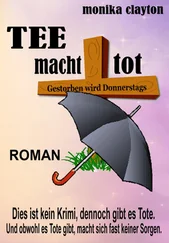The other, the one off to the side, whom no one has any real memory of. Because it is true after all, also for Susette. You do not remember Solveig, you remember Rita.
And then to just be left behind alone when the other has left for good.
Left at the childhood home, the cousin’s property, just that old man, the cousin’s papa, whom Susette always cleaned for and visited and looked in on sometimes as part of her work responsibilities and who had died in the late summer before that fall.
“What are you going to do with the house?” Susette asks Solveig after some time has passed. Solveig shrugs her shoulders, answers that it is not hers. The old man left everything to her brother. The whole shitload , Solveig clarifies, spitting out the words, poorly restrained wrath bubbling under the surface, Susette has never seen her so angry so angry. “That property still has a certain value after all.”
“You have a brother?” Susette asks in surprise while at the same time realizing how stupid the question is. Of course she knows, has always known. Just had not really thought about it.
“Of course I have a brother,” Solveig hisses impatiently. “Bencku. Don’t you remember anything?”
“Djeessuss!” rushes out of Susette’s mouth, because in that moment something else has occurred to her of course. The Boy in the woods . Bengt. My love it is pure and true . Maj-Gun at the newsstand. Susette just cannot, even though it is unsuitable, hold back a little laugh.
“What are you laughing about?”
“Nothing, sorry. But shit, Solveig. Seeing as how you’ve been stuck with everything.”
“I’ll be fine,” Solveig says, cutting her off, collected again. “Business is good. There are loans from the bank.”
“That brother,” Solveig asks carefully. “Where is he now?”
Solveig laughs shortly. “Djeessuss. Who knows? And I don’t mean anything mystical by it. To hell with him. That’s it. And don’t ask me where it started for him. Nowhere, everywhere. Being adrift, more shit. He is drawn to it, so to speak.”
And that has almost been the most Solveig has ever said about herself in that way, in the company car, or while working.
Because Solveig and Susette, they do not exactly talk about personal matters, whether they are cleaning or riding in the company car together. So, seriously, they do not talk about anything really. Ordinary things and that jargon they have, isolated observations from various cleaning projects. Susette about the Frenchman on the Second Cape, for example. Not about the sea or the music on the veranda and all that, but about the floor-length polyester blouses that the entire diplomatic family, mother father and three children, change into every evening when it is not about representation but having spare time, whether or not they are making music. The French family’s idea about how a real summer archipelago life should be lived, running around in pajamas on the cliffs .
On the other hand, with Solveig, in general: it is good. Stories; old stories, been there done that, it blows away. Traveling with Solveig in the company car—that year, the last year Solveig and Susette clean together and in general, Solveig gets a new car, a Volkswagen Transporter, marbled gray, four-wheel drive. And Solveig who plays the radio, the news, the weather forecast or her old cassette tapes. Folk songs, Micke’s Folk band, And the girl came from her lover’s meeting , the volume higher, less exorbitant.
With Solveig during the day, but actually, how do you know a person? How do you get to know them? By talking, endless arguing about this and that, stories, stories about life and death and success and adversity and all the experiences you have had? Nah. That is not the only way, Susette knows. Because with Solveig, despite the fact that they never share information about themselves—when Solveig says something for real, something important about herself, it comes in passing—but still, Susette knows exactly who Solveig is. And that both of them, she and Solveig, in some way are alike. Not like twins, but parallels so to speak.
And besides, does everything have to be attributed to something that has happened, something in the past?
Because later, with Solveig, in Rosengården 2. Walking, running down the avenues, in such a pounding NOW, sunshine.
Tabula rasa. Being nothing, and new. That possibility.
•
As mentioned, it is early fall, they are in Rosengården 2 almost all the time when they are working together. Vacuuming, washing windows, polishing so that the houses will be ready to be lived in. Those who have bought the houses and are going to live in them are rarely seen, you do not know who they are of course except for the fact that they have a lot of money and most of them come from somewhere else, not from the District. A mother-in-law or wife with girlfriends with an eye for color and good taste who show up sometimes, give good advice. My grandmother this, at Marttorna we learned it this way… and so on, though of course they do not grab the polishing rags personally, but they know exactly how they should be used.
But for the most part Solveig and Susette alone, in Rosengården, in the empty houses: all architectonic masterpieces, different from one another but certainly at least three floors in each one of them. Enormous spaces, millions of feet up to the ceilings, the floor space. Furnishings like landscapes that in some of the houses should be completely ready when the residents arrive. Curtains hung up, beautiful patterns, material, paintings along the walls, sculptures, art. An exquisite family of rabbits, for example, made of heavy and transparent glass, in countless pieces. Two larger and two smaller ones that for several weeks have been standing ready on a podium on one of the landings outside the door to a room that presumably will be the nursery: washing machine–friendly jungle animals on the wallpaper in there.
These rabbits collect dust: need to be dusted, crrrrfllll Solveig hisses all the time.
Moving inside the houses, a bit like a thief. With endless care, of course, no Solveig is needed in order to point that out. Tippytoe . But a certain thieflike merriment amid the respect.
Or, then, outside: on the lush avenues cutting through Rosengården 2, which is going to be fenced in with high walls and have an electronic monitoring system at the gate so that the area can be kept closed off from outsiders. “This is the future.” Solveig laughs, there on the avenues, silly maybe, though when you find yourself in that exact place, it is not at all.
Walking in the future with Solveig, in Rosengården 2: on the open asphalt roads where the trees are already growing tall. Full grown from the beginning, symmetrical and richly branched, as if they have been standing in the same straight line in the same places in straight rows and are not, as they are, newly planted.
“Tobias would say that it’s cheating,” says Solveig. “Tobias would say that you can’t buy history and experience.”
“But, Susette,” Solveig says later. “Forget about Tobias. You don’t need to think so much—
“There is also that possibility, Susette, that all of the old stuff can disappear. And it’s not silly. Doesn’t need to mean obliterated or forgotten. Just that you don’t need to walk around and see with the same eyes, the eyes of the old people.”
And right after, something else, something about herself. “It was hell for quite a while but it’s good now. It took a hundred years before I got my child. I had so many miscarriages.”
Susette nods, she understands exactly. No more words are needed, no words spoken from the heart, nothing that big . Just walking with Solveig, in that openness. A clear day at the beginning of September, thinning, blindingly white clouds racing across the sky.
Читать дальше











